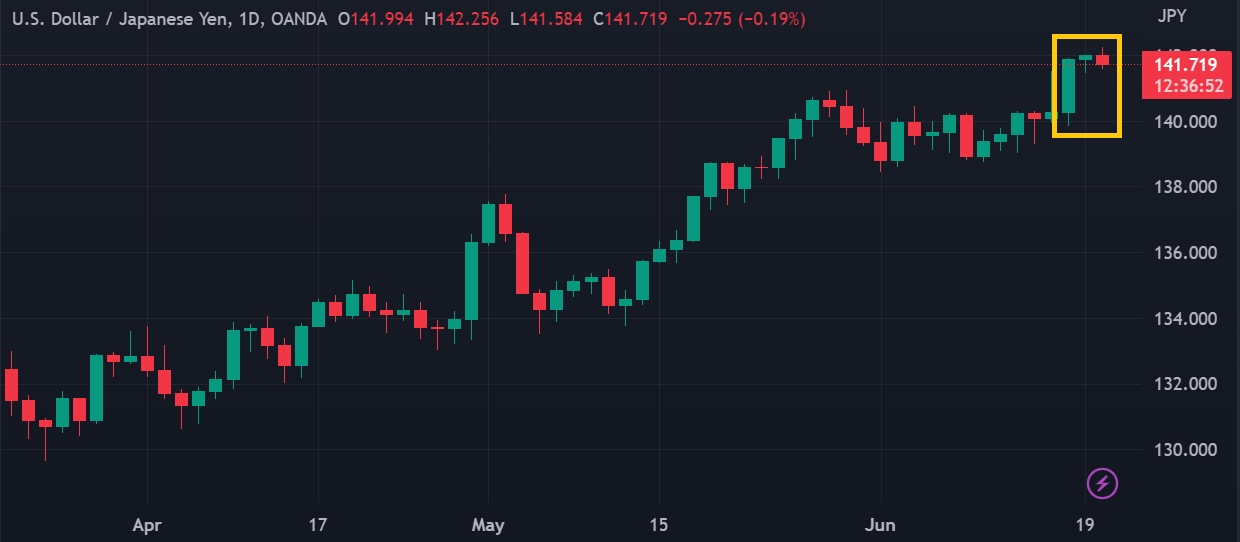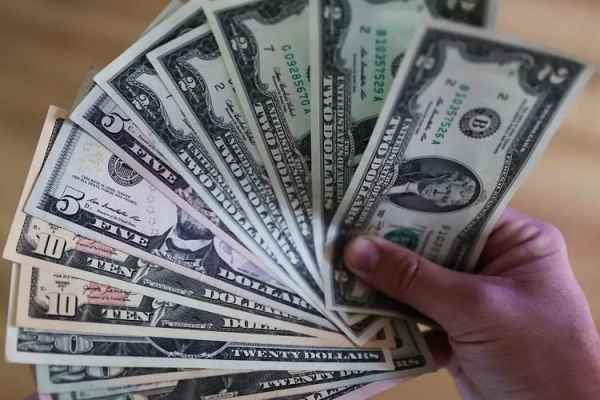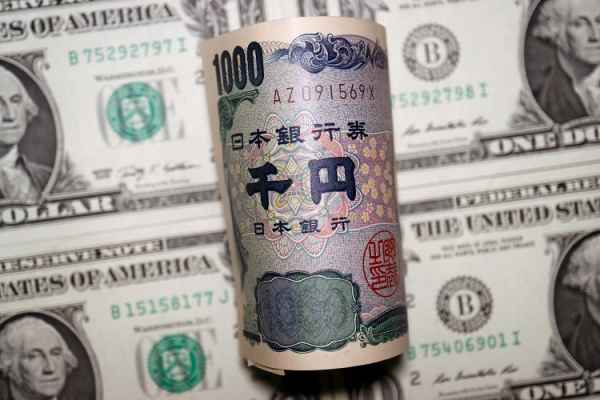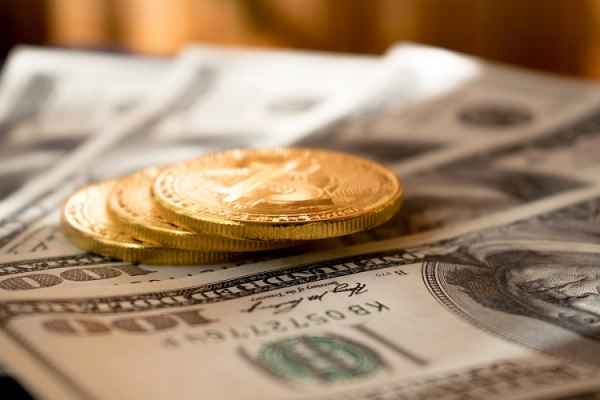Bank of Japan kept its yield and interest rate targets at almost zero, causing the yen to plunge to record lows against various other currencies.
The Bank of Japan's (BoJ) policy meeting announcement on Friday clearly showed a dovish bias, causing the yen exchange rate to face significant pressure this week. During Asian session trading on June 20, USD/JPY reached its highest level since November 2022, at 142.25, while EUR/JPY maintained a record high since 2008, hovering around 155.00.
The momentum of the USD/JPY rally has started to slow down in today's trading. However, there are no evident factors that could consistently drive yen strength.

Japan's latest consumer price report revealed an annual inflation rate of 3.5%, the highest since August 1976, significantly surpassing BoJ's inflation target. Despite this, the BoJ maintains that a near-zero yield and interest rate target are necessary to ensure sustainable progress toward the inflation target.
"We expect trend inflation to heighten as economic activity strengthens and the labour market tightens. But there's very high uncertainty on next year's wage negotiations and the sustainability of wage growth," said BoJ's Governor Kazuo Ueda. "At present, inflation has exceeded 2% for 13 straight months but could fall below that level ahead. That's why we are not normalising monetary policy. But if that view changes sharply, we will have to change policy."
The response from experts to the BoJ's policy meeting outcomes has been lukewarm. Some analysts believe that the BoJ's stance guarantees continued yen depreciation, and they anticipate a policy shift only if public sentiment becomes strongly negative.
Min Joo Kang, ING's senior economist for South Korea and Japan, wrote in a note to clients cited by Reuters, "We believe that Japan's economy is recovering solidly compared to other major economies and will continue to outperform in the future. But, if monetary policy fails to reflect this shift of economic fundamentals and the BOJ keeps its dovish policy, then the yen should depreciate even more."
"The BOJ is not in a hurry to tweak policy on the view the side-effects of YCC aren't so large," said Izuru Kato, chief economist at Totan Research. "But it may be forced to act if the yen weakens further and drives up import costs, angering the public. The trigger for a YCC shift could be a sharp yen fall."
Market participants are now eagerly awaiting the testimony of US Federal Reserve Chairman Jerome Powell on Wednesday and Thursday. Powell's statements could confirm or challenge market expectations regarding the future interest rate outlook of the Fed. Current market data suggests a greater than 70% probability of a 25 basis point hike in July. If Powell adopts a more hawkish stance than anticipated, the US dollar could strengthen again.

 Dedicated FREE FOREX VPS
Dedicated FREE FOREX VPS Free FOREX Virtual Private Server
Free FOREX Virtual Private Server MT4 Demo Contest, Get $500
MT4 Demo Contest, Get $500 Sign Up for an Account, Claim 60% Deposit Bonus
Sign Up for an Account, Claim 60% Deposit Bonus Free MT4/MT5 VPS 2024
Free MT4/MT5 VPS 2024 Send E-mail and Get Free Merchandise
Send E-mail and Get Free Merchandise $1K Refer a Friend Bonus for Pepperstone Pro clients
$1K Refer a Friend Bonus for Pepperstone Pro clients Maximize Your Earnings with 100% Deposit bonus
Maximize Your Earnings with 100% Deposit bonus Trade to Win, $5,000 Monthly Demo Contest
Trade to Win, $5,000 Monthly Demo Contest Claim 30% + 15% Deposit Bonus from LiteFinance
Claim 30% + 15% Deposit Bonus from LiteFinance






